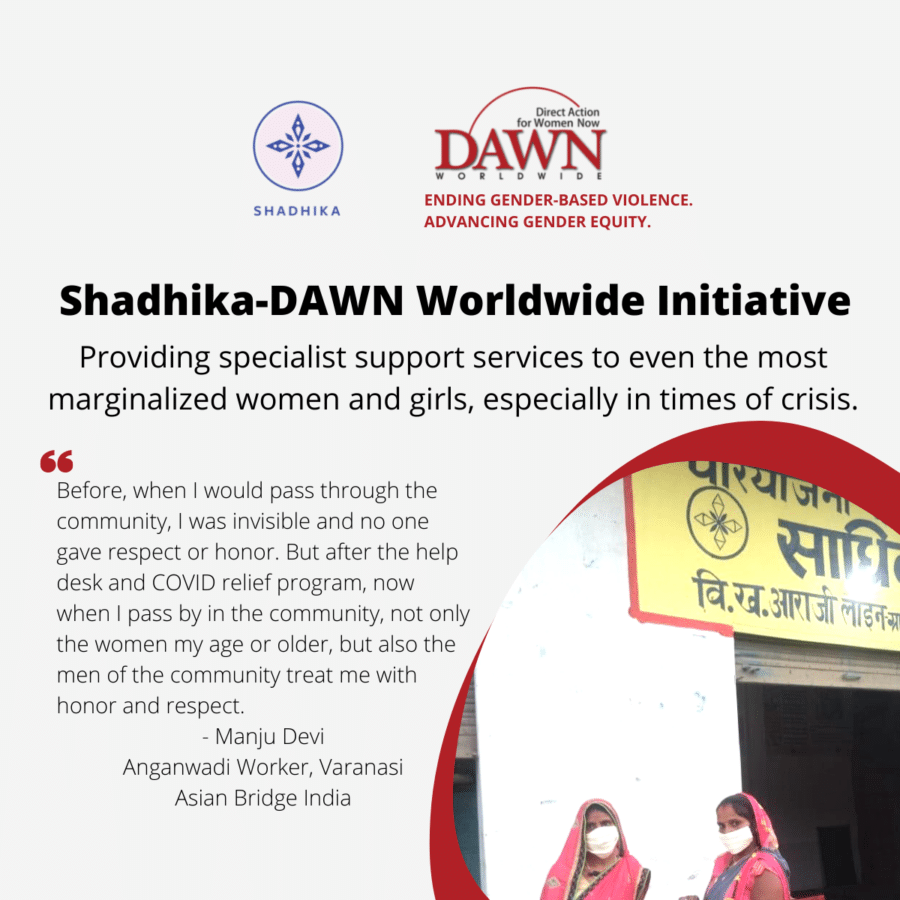Gender and violence have a complex relationship.
Gender norms in society shape and reinforce the behaviours and roles of its people, often creating, whereby one gender becomes empowered to the disadvantage of the other. In many societies, women are viewed as subordinate to men and enjoy a lower social status.
Gender inequalities have a significant and wide-ranging impact on society. For example, they can contribute to gender inequities in access to health care, opportunities for employment, political participation, and education.
Often, inequalities in gender increase the risk of acts of violence by men against women.
Community interventions can empower women and engage with men. Community interventions that address gender norms and attitudes can promote gender equality and prevent violence against women by challenging stereotypes. By including methods that empower women economically and also enlist men as partners, these interventions effect change in individuals and whole communities.
Manju Devi is an Anganwadi Worker at a Rural Child-Care Center in a village called Ganeshpur in Uttar Pradesh, India. Anganwadi Workers (community workers) cover the last mile gap between government welfare schemes and marginalized communities with malnourished children. When Manju Devi first announced to er family that she would like to serve in the community, her family was not pleased. She was permitted to take up the work, provided she completed all her daily household responsibilities in her roles as a wife, daughter-in-law, and mother.
The DAWN Worldwide- Shadhika ‘Initiative To End Gender-Based Violence’ is running interventions in 3 villages of Varanasi district in Uttar Pradesh with the help of local partners. The project team connected with Manju Devi and her husband, and they began to attend meetings organized by the field staff. This gradually broke down the stereotype gender roles and norms that were preventing them from escaping from their family’s intergenerational cycle of poverty.
According to Manju Devi, in the last two years she was respected by her family, something that she missed ever since she was married. During the second phase of the project, she supported the COVID-19 Help Desk run by the project and worked really hard within the community on the awareness and vaccination camps, which led her to gain respect and honor in the community.
“Before, when I would walk through the community, I was invisible and no one gave me any respect. But after the help desk and COVID relief program, now not only the women my age or older, but also the men of the community treat me with honor and respect”, says Manju Devi. She wants to continue her work in the community and spread the word about benefits of the behavior change. She wants to tell everyone that “peace in the family is not from the money or heavy income, it is the respect and honor of each other in the family.”
DAWN Worldwide- Shadhika ‘Initiative To End Gender-Based Violence’ interventions are successful in transforming harmful gender norms because they guide community members at all levels of society, through gradual and sustainable change. As SDG5 says, “Gender equality is not only a fundamental human right, but a necessary foundation for a peaceful, prosperous and sustainable world.”




 A Genius Stack Website
A Genius Stack Website